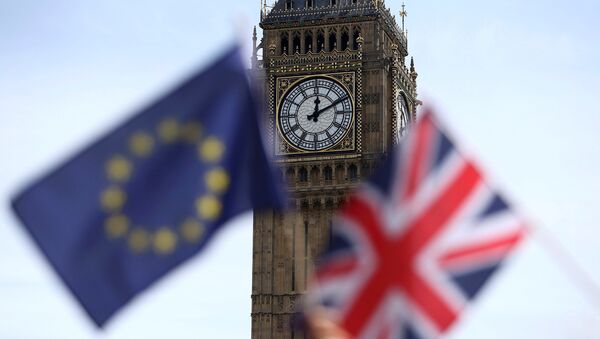"Over half of small businesses with EU workers are worried about accessing people with the right skills (59%), or growing their business (54%) post-Brexit," the statement summarizing the results of FSB's report, dubbed "A Skilful Exit: What small firms want from Brexit," read.
According to the research, 21 percent of small UK businesses currently employ citizens from EU member states. Apart from this, 72 percent of these businesses have hired all of their workers originating from the European Union when they were already living in the United Kingdom.
The research showed that almost one half of small businesses with EU nationals employ "mid-skilled staff," such as care and construction workers, mechanics and office managers. If the United Kingdom's withdrawal from the bloc creates additional barriers for recruiting EU citizens, 13 percent of small firms that employ EU workers would consider moving their business abroad, 13 percent might reduce operations, while 8 percent may even consider closing down, the statement read.
"Securing the right to remain for EU workers in the UK must be a priority. It’s also crucial small firms are given time after the UK leaves the EU to prepare for the new immigration arrangements. There can’t be a sudden cliff edge preventing small firms from accessing the workers they need. This means having sensible transitional arrangements first, followed by the phased implementation of a new immigration system," Mike Cherry, the FSB national chairman, urged.
The UK economy is dependent on EU migrant workers, with an estimated 2.2 million EU nationals comprising 7 percent of the country's labor market in 2016, the recent report of the UK Office for National Statistics showed. The official figures suggested that over 10 percent of EU migrants are working in such sectors as manufacturing, financial and business services and retail trade.
Earlier in April, the European Commission prioritized the post-Brexit EU-UK migration issue in its draft of Brexit negotiating directives. The United Kingdom's politicians and authorities, including the London Assembly, have also repeatedly called on the country's government to establish a flexible immigration system between the United Kingdom and the European Union, which would allow the nation to cope with consequences of the immigration policy changes post-Brexit.




